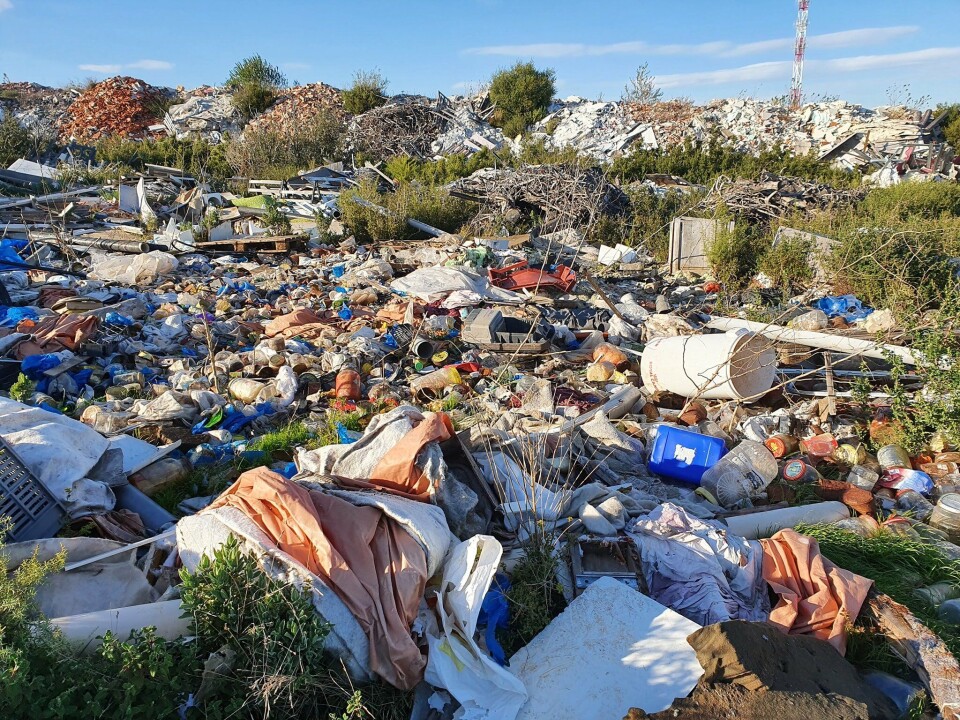-
Mysterious boom rattles residents in south-west France
Local community turns to social media for answers
-
France tightens reimbursement rules for flight delays or cancellations
New measures include mandatory mediation and new claim procedures
-
What snow conditions look like for skiers across French Alps and Pyrenees
Ski resorts are expected to get busier as school holidays begin this weekend
France must crush illegal fly-tipping, says stand-up comedian
Jean-Yves Sayag, now a waste management councillor, is calling for a change in the law after recently exposing a 50-hectare site near Aix-en-Provence

A nationwide crackdown on illegal fly-tipping has been called for by a stand-up comedian who turned to politics to clean up his region.
Jean-Yves Sayag is now a councillor for Métropole-Aix-Marseille-Provence, responsible for waste management.

He recently exposed what he called “the biggest illegal rubbish dump in France” – a 50-hectare site near Aix-en-Provence where businesses have been dumping their waste for six years.
“There are bricks, tyres, gravel, asbestos roofing [dangerous because it is carcinogenic], tanks with oil residues, furniture, fax machines...” he said. “I would say 90% of the problem comes from businesses trying to reduce their costs by not paying to take their rubbish to an official tip.”
Unlike private householders, businesses pay to use official waste sites.
Prices vary from commune to commune, but in Eure, for example, a professional will have to pay €130 a tonne for material such as insulation, floor covering or glass, €110 a tonne for wood, €66 for concrete, tiles and bricks, and €541 a tonne for waste containing asbestos.
“A dishonest builder may well charge a client for disposing of waste but go on to dump it illegally for free,” said Mr Sayag. “There are also organised companies working on the black to transport waste who are paid €200 in cash instead of the €700 it might cost if it was dealt with legally.” His proposed solution is a tax on DIY material bought by professionals and the public to help finance an increase in the number of official waste sites.
“This could also pay for an environmental police force with the manpower and resources to track down the wrongdoers, for example video cameras to survey illegal tips. There should also be a national phone number so the public can alert the authorities if they witness illegal tipping.”
Ecology Minister Barbara Pompili has said the fight against fly-tipping is a government priority.
Last summer, she visited the Plaine de Triel, Yvelines, where it took the council almost a year to clear 26,000 tonnes of rubbish spread over nearly 330 hectares. Nearly 900 tonnes were assessed as dangerous to health.
Ms Pompili has promised that building material will be included in the “extended producer responsibility” (REP) network from 2022. This makes manufacturers responsible for the lifecycle of their products – they have to include end-of-life recycling and waste management in production costs.
This would mean builders would not have to pay for getting rid of their waste, if it derived from a REP firm.
The problem does not only concern huge tips. A federation of 3,500 eco charities, France Nature Environnement (FNE), has introduced a telephone app, Sentinelles de la Nature, which allows the public to post details of fly-tipping they spot. FNE Languedoc-Roussillon president Simon Popy said there are more than 200 alerts a year in his area, often with small amounts which may be from private individuals or firms.
“Up to now, there has been no way of charting how many illegal rubbish dumps there are, so we cannot tell whether it is getting worse, but we do know it is a huge problem.
“We cannot deal with every fly-tip we are told about, so we advise anyone who has alerted us on the action they can take. The first step is to contact the mayor.
“They have powers to deal with illegal dumping in their commune. If they can find out who is responsible, they can go on to private land to deal with the problem, charge the clean-up fees to that person and, since 2020, they can give out a fine of €15,000.
“However, many mayors are not even aware of this power – and even if they are, they do not necessarily have the manpower or the resources.”
Some mayors get so fed-up that they post YouTube videos of their actions.
Christophe Dietrich, mayor of Laigneville, Oise, filmed his council workers delivering 10 tonnes of rubbish from the back of a lorry on to the owner’s drive after neighbours told him who had dumped it in a field.
He charged the fly-tippers €800 for the work – and the policy has brought results. Fly-tipping in his commune has gone down from four times a week to three a year.
























